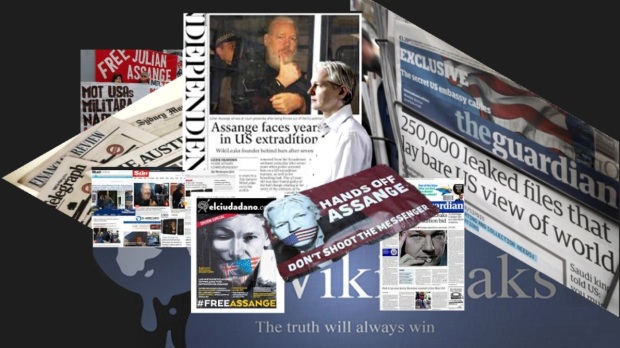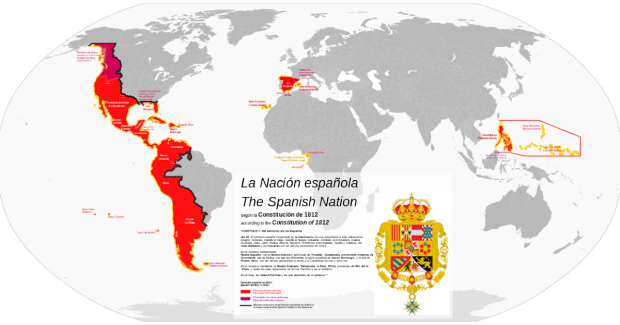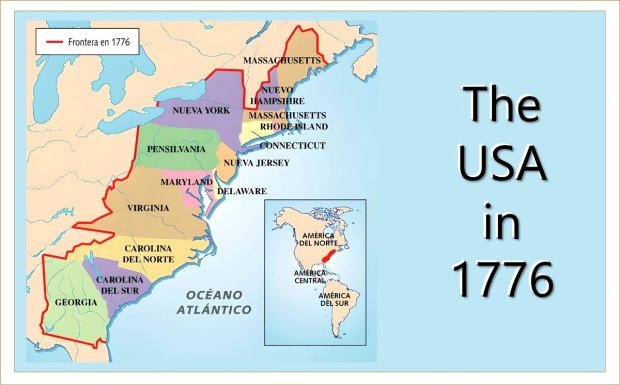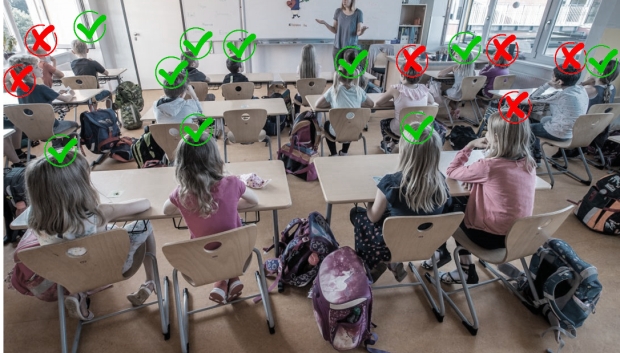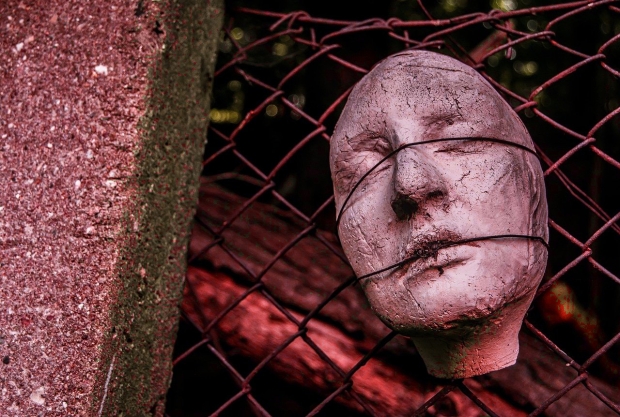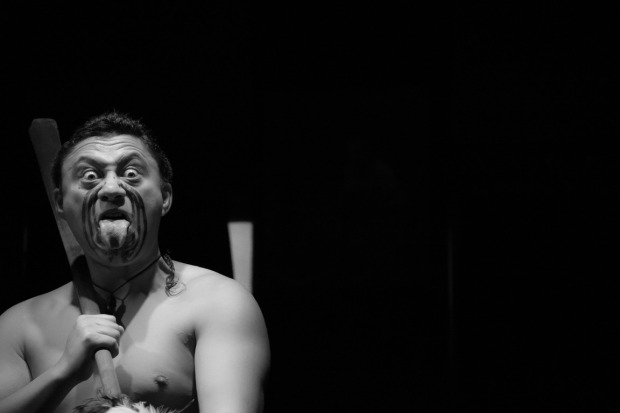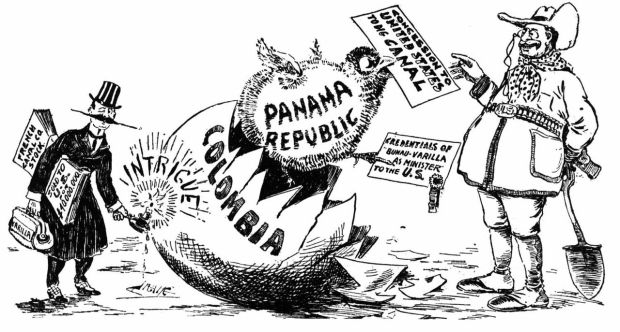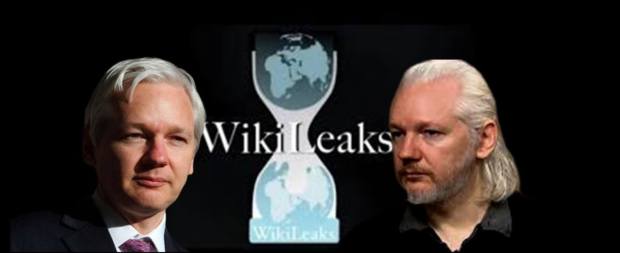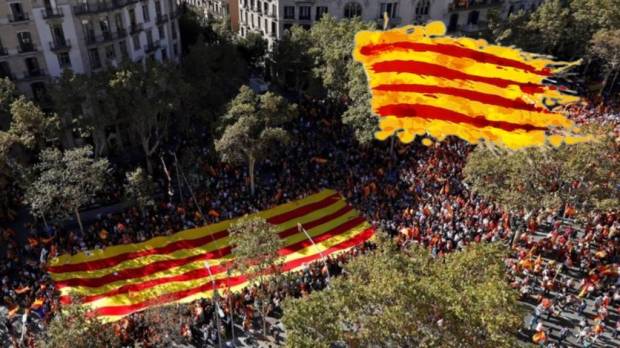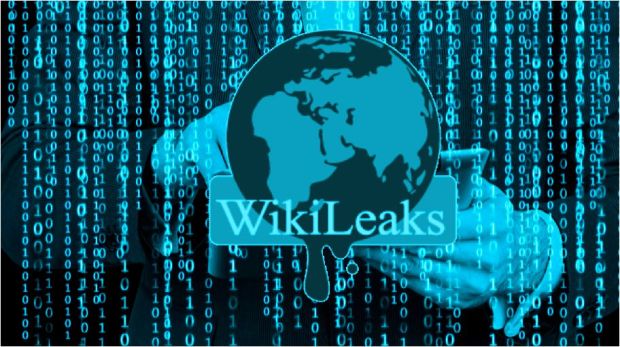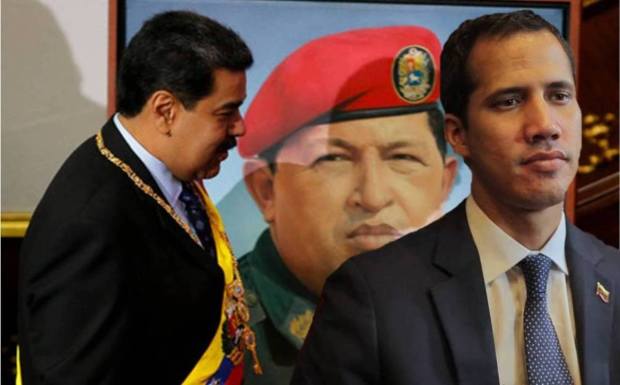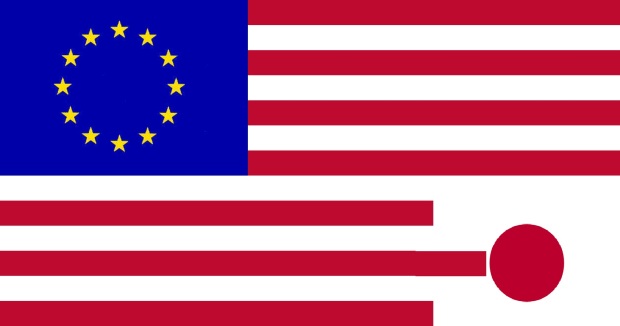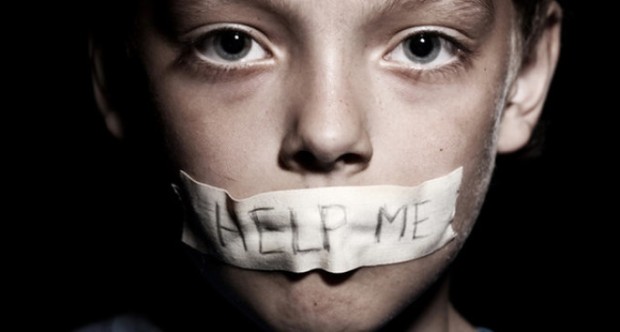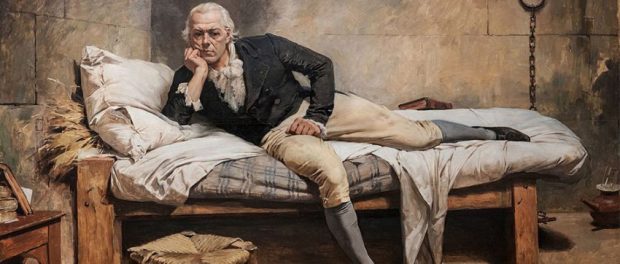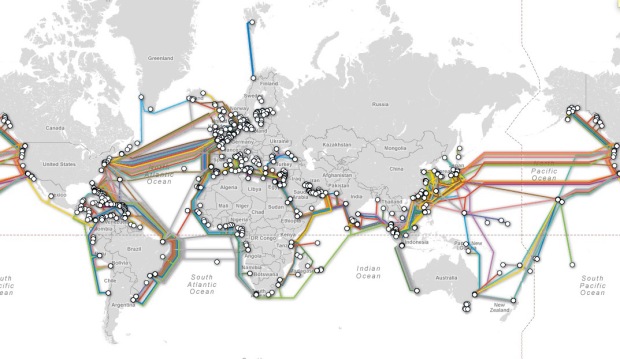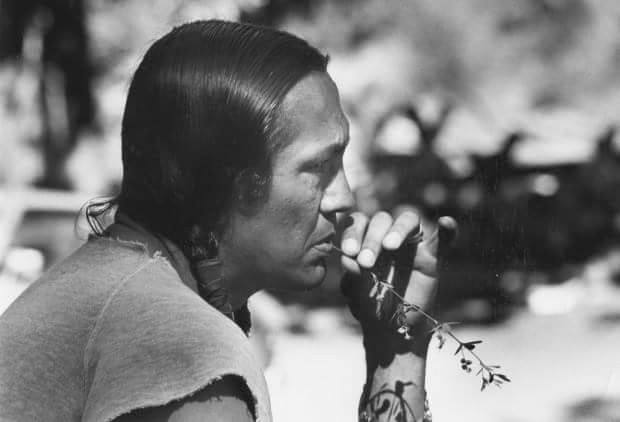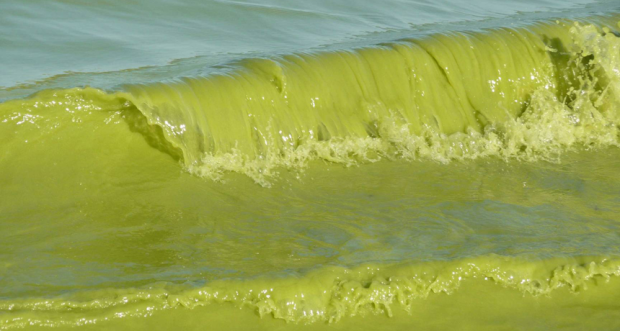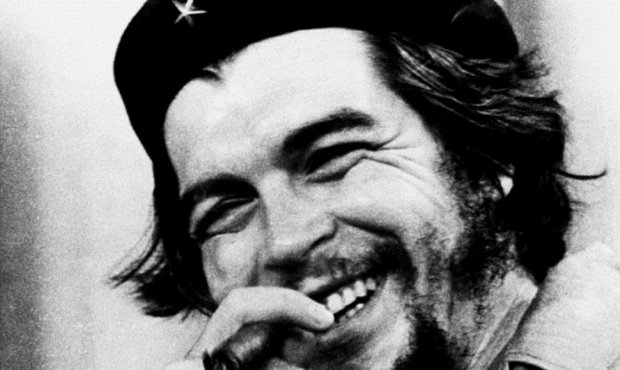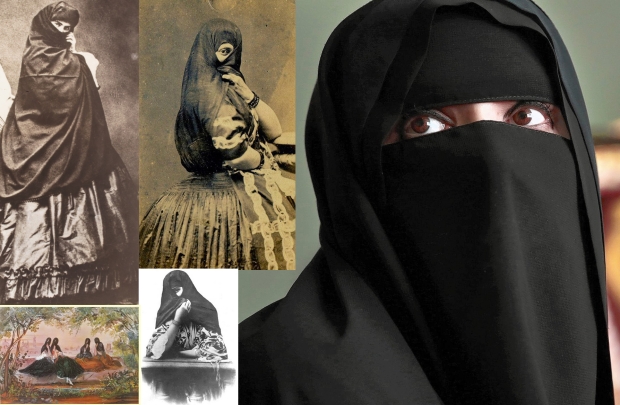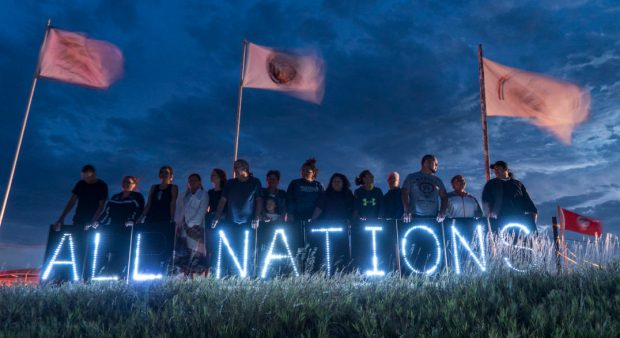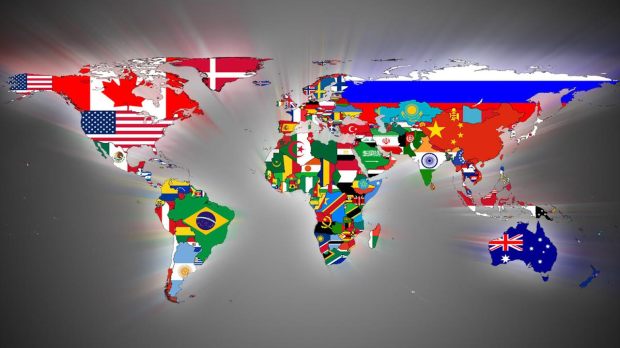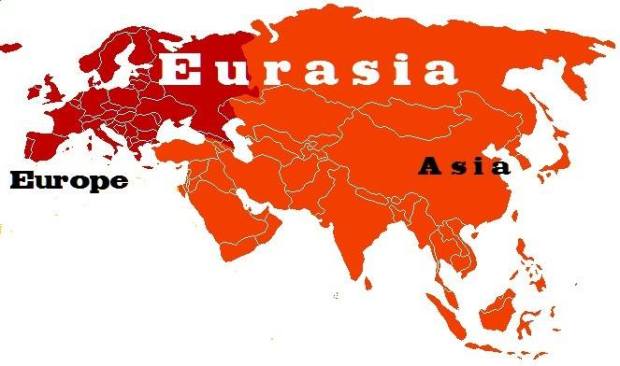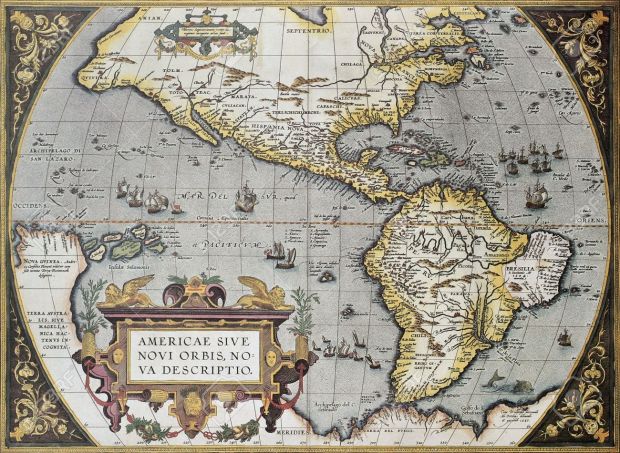KBNBWorldNews tells you the truth, support it: click to donate. WE NEED YOUR SUPPORT
Read also: FIRST PART – WikiLeaks Revelations
SECOND PART
By Katia Novella Miller
In-Depth Report/Long read. On Monday 4 January 2020, the British judge Vanessa Baraister rejected a US request to extradite WikiLeaks founder Julian Assange to the United States purely on the grounds that he would be in ”high suicide risk” in the ”US brutal prison system” whilst supporting all other accusation of the prosecution. She has in fact demolished all defence arguments denying it is a political persecution.
“We are dismayed that the judge showed no concern for press freedom in any of her comments today, and effectively accepted the US arguments that journalists can be prosecuted for exposing war crimes and other government secrets, and for protecting their sources,” stated Marcus Storm, Australian Media Federal President (MEAA). “It’s a rather feeble precedent against the extradition of whistleblowers and/or in defence of the free press. Democracy needs better than that.”
”It changes nothing as far as global imperialist tyranny is concerned”, wrote independent Australian journalist Caitlin Johnstone.
”It’s a very worrying sentence”, commented the Spanish journalist Iñaki Gil de San Vicente. ”because rejecting all defence arguments, they have left an open door to the US to charge Assange again. And saying that they have rejected his extradition because his health could mean that when he gets well again of the terrible conditions he has been suffering, he could be extradited to the US. We have many cases in the West and in the world of prisoners, in Ireland, Palestine, Spain, Sahrawis in Morocco, in South America during Operation Condor, etc, that point out that once the prisoner has recovered, the imperialist justice falls on him again. No one can be tried twice for the same crime, but we have this happening here in Spain right now for example. Assange could have the same fate. In this case, we would be before a reiteration that would create jurisprudence”, a legal precedent hence a ‘new law’. It would mean that ”people could be tried twice for the same accusation if the courts and those in charge decide that the first trial does not suit them or is not positive for them”, concluded Gil de San Vicente.
On January 6, two days after rejecting his extradition to the US, the same British judge denied bail for Assange. Keeping him in the same situation at Belmarsh, is making him weak and ill. Belmarsh is London’s maximum security prison, where he is also at high risk of Covid19.
”The personal battle for Assange won’t be over until he is properly free” – wrote British writer and freelance journalist Jonathan Cook. ”And even then, he will be lucky if the last decade of various forms of incarceration and torture he has been subjected to do not leave him permanently traumatised, emotionally and mentally damaged, a pale shadow of the unapologetic, vigorous transparency champion he was, before his ordeal began. That alone will be a victory for the British and US establishments who were so embarrassed by, and fearful of, Wikileaks’ revelations of their crimes.”
”It would be nice to imagine that the British legal, judicial and political establishments grew a backbone in ruling against extradition. The far more likely truth is that, they sounded out the incoming Biden team and received permission to forgo an immediate ruling in favour of extradition – on a technicality”, wrote Cook.
If extradited to the US, Julian Assange could face trial on 18 charges, 17 of them under the Espionage Act, and one under the Computer Fraud and Abuse Act. If convicted, he could face a 175-year sentence. He would also face a real risk of serious human rights violations: torture, other ill-treatment, inhuman isolation, which is what he has been already suffering in England where he has been arbitrarily detained for seven and a half years in the Ecuadorian Embassy and for two years at Belmarsh, London’s Guantanamo prison. Julian Assange is the first publisher to face charges under the US Espionage Act.
As Jonathan Cook wrote, one of the main reasons of Assange’s persecution was that Assange’s WikiLeaks dared to expose the crimes committed by the US and its allies in Europe, the Middle East and around the world. Thousands of innocent people were killed, kidnapped, tortured, or forced to migrate. Agreements between governments to keep the current unjust, corrupt and destructive global order and to support the multi-billion, deadly weapon and financial industries. Assange exposed the increasing spying operations on people worldwide and the procedures used by US imperialism to overturn ‘unfriendly’ governments from power around the world. Julian Assange also brought to light the growing power of multinational corporations and their impacts. The above are just a sampling of the crimes committed by the US and its allies.
Julian Assange has become the main target for persecution because he exposed the reality of power and it was becoming impossible to manipulate people with a false narrative of ‘reality’ and ‘normality’. Hence, the collective nature of his international persecution.
He created an innovative way of doing journalism, through the creation of a web platform which offered to insider whistleblowers, the possibility to make public, secret or confidential information anonymously, and give people the chance to know about it. Something great powers do not like.
Assange and WikiLeaks have become so dangerous after rejecting the selfish values of hedonism, self-benefit and indifference with which the masses are bombarded everyday through the media, by offering important and relevant information that would otherwise be censored by mainstream media to all of us. Part of that important effort included assisting Edward Snowden – the National Security Agency (NSA) whistleblower, who revealed how the U.S. is spying on people not only in the U.S. but around the world. Assange provided assistance to Snowden to leave Hong Kong and apply for political asylum in Russia. Something great powers do not like.
WikiLeaks have empowered people with accurate information and knowledge about our societies. This has clarified for many people the real nature of our world and clarified for many people, any hazy ideas they may have had. Julian’s work has allowed people to interpret human societies in a more honest and truthful light, contrary to the official narrative promoted by media and great powers.
”We shouldn’t actually perceive the US, Canada, the UK, New Zealand and Australia as different countries. They are at a deep structural level, in terms of intelligence agencies and diplomacy, the same country”, Julian Assange on the Anglo-Saxon white Christian Empire – (Click to watch the VIDEO).
To reveal how the world truly, is something great powers and their subject-servant states certainly don’t like and don’t want. How is one to interpret the words of Maureen Baird, a 27-year veteran of the US Bureau of Prisons and former warden of a New York Metropolitan Correctional Centre? She was called as a witness by the Assange legal defense team and testified on September 29, 2020 at the Court in London. When she was asked why she was so sure that Assange would be treated as a national security risk in the US she said:
“Because he may still know things that he hasn’t revealed.”
As New Zealand journalist Suzie Dawson, has pointed out:
”The playbook of the intelligence agencies, is to divert, control and consume the attention of their targets. Once they can direct your attention, they can control your entire life. Julian’s attention and resources were diverted to trying to defend himself.”
And undoubtedly this is exactly what they have done by creating problems and ultimately interrupting Assange’s and WikiLeaks activities.
Assange’s case is not only the targeting of one of the most well-known, influential, anti-status quo, anti-establishment journalists and thinkers of the last decade. It’s an example to deter other journalists wherever they are (in the world) from ever following in his footsteps. It’s an example to discourage insider whistleblowers and informants – the main source of investigative journalism and a foundation of democracy – who believe their governments, the institutions they work for are corrupt and committing crimes. It’s a message to activists and intellectuals who honestly fight for human rights, against corruption and for a better world. It’s a message to us all, ordinary people, that says, ‘we don’t have the right to be informed of what governments and powerful people who run the world do’. It’s the end of real (good) journalism. Even after British judge Vanessa Baraister’s last verdict (4 January,2021), any journalist, from wherever in the world who ‘dares’, could have the same fate. Julian Assange is not a citizen of the US, has never lived in that country and nor has he worked there.
To continue offering our reports in English and other languages, we are looking for volunteer collaborators for various tasks: writers, lawyers, English proofreaders, translators from English into Spanish and/or Italian and vice versa; translators to other languages, graphic designers, editorial assistants capable or willing to learn to work in a CMS environment and on social networks, IT geniuses, website designers. Get in touch with us!
Donald Trump’s persecution of Assange
It was US president Donald Trump and his government who decided to press the accelerator on Assange’s detention. Over the years, Trump’s public attitude towards Assange has been determined purely by convenience. In 2010, six years before his presidential election, when asked about WikiLeaks, he called it ”disgraceful” and suggested ”there ‘should be like death penalty or something”.
In 2016, after Assange’s journalistic website published the Democratic National Committee (DNC) email documents, which allegedly caused Hillary Clinton’s defeat, he said ”I love WikiLeaks”. But obviously there were also other powerful leading actors in Trump’s government and entourage like the former CIA director, Mike Pompeo, Trump’s Secretary of State from March 2018.
Nevertheless, it was the Barack Obama administration that started the investigation against Assange and insider whistleblower Chelsea Manning – a former United States Army soldier who was convicted by court-martial in July 2013 of violations of the Espionage Act and other offences. Manning provided WikiLeaks with nearly 750,000 classified and unclassified but sensitive, military and diplomatic documents, among them the worldwide infamous Collateral Murder video – Manning was released after attempting suicide once again, after serving seven years in prison; another courageous human-hero who was moved by a noble purpose: showing to the world, war crimes (against innocent people) committed by the US and its allies.
”The assault on civil liberties began with George W. Bush and ”his fake war on terror”. Barack Obama then expanded the crackdown by using the Espionage Act to charge more whistleblowers who leaked information to journalists. Obama prosecuted more whistleblowers than all previous presidents combined. Put more simply, this authoritarianism is bipartisan”, wrote United States media outlet, The Grayzone.
During the Obama administration, eight people were charged or convicted of leaking national security secrets under the Espionage Act, more than under all previous administrations combined. The cases included Manning and National Security Agency (NSA) whistleblower Edward Snowden, who now lives in Russia, but still faces charges in the US.
Obama’s investigation against Assange was dropped in 2013 because of what has been described as ‘the New York Times problem’. The US prosecutors concluded that charging Assange would have been equivalent to prosecuting any journalist who published leaked national security information. In effect, it meant prosecuting the New York Times, The Guardian, El País of Spain, Paris’s Le Monde, and Der Spiegel in Germany and many other media outlets. If Assange violated the law, the above would also be liable to charges because they worked with him in publishing. Furthermore, this would violate the First Amendment of the Constitution of the United States, that guarantees press freedom and freedom of expression.
That decision was reversed by Trump from early 2017 onwards, apparently after meeting with FBI Director James Comey. The prosecution, initiated in December 2017, was not based on new evidence. It was the result of President Trump’s effective declaration of war on leakers and journalists. In April 2018, Mike Pompeo, by then director of the CIA, denounced Julian Assange and WikiLeaks as “a non- state hostile intelligence agency”. And on the same occasion, Pompeo also stated that Julian Assange, as a foreigner, had no First Amendment rights because ‘‘he is not a US citizen”.
Then, in May 2019, a superseding indictment was proffered. That indictment charged Julian Assange with publication of state secrets under the Espionage Act. A remarkable and unusual decision. ”Most cases involving the theft of classified information have targeted US government employees, like Manning or Snowden, and not the people who publish the information itself. And they have always been United States citizens, which Assange is not.”
Daniel Ellsberg, a former United States military analyst and researcher who, in 1971, leaked portions of a classified 7,000-page report that detailed the history of US intervention in Indochina known as the Pentagon Papers – a leak that contributed to the end of the Vietnam War – and a loyal supporter of Assange said: “Forty-eight years ago, I was the first journalistic source to be indicted (in 1973) under the Espionage Act. There have been perhaps a dozen since then, nine under President Obama. But Julian Assange is the first journalist to be indicted. If he is extradited to the US and convicted, he will not be the last.”
Vanessa Baraister’s verdict opens the path towards this. Assange was charged with 17 counts of violating the US 1917 Espionage Act, each one carrying a 10-year prison sentence.
- Today’s American national boundaries were determined by global power in the past: Spanish America, Brazil and The Caribbean – PART II

- Las fronteras americanas de hoy fueron una cuestión de poder global en el pasado: América Española, Brasil y el Caribe, nacimiento y formación – PARTE II

- I confini americani di oggi, nel passato furono una questione di potere globale: l’America Spagnola, il Brasile e i Caraibi, nascita e formazione – PARTE II

The Espionage Act, a product of one of the most repressive periods in the US
The Espionage Act was a product of “one of the most repressive periods in the history of the United States of America. Following the US declaration of war in World War I, the administration of President Woodrow Wilson introduced a bill that would become the Espionage Act of 1917. The term ‘espionage’ was a misnomer. Although the law allowed for the prosecution of spies, the conduct it proscribed went well beyond spying. Indeed, the Espionage Act would become the principal tool of repression against opposition to U.S. participation in the war”, said Carey Shenkman, an attorney who has co-authored a book on the Espionage Act, in his testimony, during Julian Assange’s extradition trial in London.
Whilst the Espionage Act established harsh penalties for spying for a foreign enemy in wartime, the Act also reflected the government’s desire to control information and public opinion. It embraced broad proscriptions against the possession and transmission of information related to national defense, established severe penalties for criticism of the war, contained conspiracy provisions, and established a censorship system for the press. Through it, many leftists were imprisoned.
“During World War I, federal prosecutors considered the mere circulation of anti-war materials, a violation of the law. Nearly 2,500 individuals were prosecuted under the Act on account of their dissenting views and opposition to US entry in the war,” Shenkman said.
Assange is accused of 17 counts of violating the Espionage Act and one count of conspiracy to commit a computer crime that, as alleged in the indictment, is written like an Espionage Act offense.
“There has never, in the century-long history of the Espionage Act, been an indictment of a U.S. publisher under the law for the publication of secrets,” declared Shenkman. And ”there has never been an extraterritorial indictment of a non-United States publisher under the Act.”
”Prosecutions have been relatively rare and limited almost entirely to spies — until recently. The Obama administration used the Espionage Act to prosecute suspected national security leakers”, confirmed Mark Zaid, a Washington DC attorney specialized in national security cases. ”During the Obama administration, eight people were charged or convicted of leaking national security secrets under the Espionage Act — more such cases than under all previous administrations combined”, said Zaid.
Google, Facebook, Instagram, Twitter… are trying to silence independent media fighting for the truth and a better world. Given this fact, it is extremely important for people to search out information for themselves, go directly to our website and others, subscribe to diverse email lists, and not rely on social media for information. Please enter your e-mail and click to subscribe to get our reports in your inbox
The Spy Grand Jury, from the beginning was planned to convict Assange
In the US ”he will not receive a trial consistent with the rule of law. Assange will receive a trial-by-jury in Alexandria, Virginia – the notorious «Espionage Court» where the US tries all national security cases. The choice of location is not by coincidence, because the jury members must be chosen in proportion to the local population, and 85 % of Alexandria residents work in the national security community, at the CIA, the NSA, the Defense Department and the State Department. When people are tried for harming national security in front of a jury like that, the verdict is clear from the very beginning. The cases are always tried in front of the same judge behind closed doors and on the strength of classified evidence. Nobody has ever been acquitted there in a case like that. The result being that most defendants reach a settlement, in which they admit to partial guilt so as to receive a milder sentence”, explained the UN Special Rapporteur on Torture, Nils Melzer to the Swiss media outlet Republik.
In 2011 alone, the U.S. Department of Defense awarded 159,193 contracts worth over U.S. $42.8 billion to companies in Virginia.
It has been reported that from 2011 a secret Grand Jury was meeting in Alexandria (Virginia) to consider indicting Julian Assange under the Espionage Act. When the Obama-Grand Jury started investigating Manning and Assange, the US attorney for the Eastern District of Virginia was Neil MacBride, who worked as a chief counsel to then-Senator Joe Biden, new president of the US. This is the same federal court in Virginia, where the Justice Department has decided to charge Edward Snowden with leaking secrets about US surveillance programs.
Assange and WikiLeaks members have always asserted that the Swedish case – Assange was under a years-long saga–investigation by Swedish authorities for ‘minor rape’ allegations (read the First Part of this Special Report to know more) – was an extension of a great campaign against WikiLeaks. Kristinn Hrafnsson, an Icelandic investigative journalist, current editor-in-chief of WikiLeaks, has said in regard to this: “We also knew early on that a grand jury investigation against Wikileaks had started, in early 2010, because of the leaks that year, and it has continued for more than a decade now. It is unparalleled in scope and nature. Years ago, we heard that the documents gathered for the investigation exceeded 40,000. We’ve always known that this was ongoing and brewing. We were called conspiracy theorists because of that”.
”We must turn the current court case into a trial of those who ordered young soldiers to kill civilians, to maim and to murder journalists, to shroud whole communities in tears and in pain. We must turn Julian’s prosecutors into defendants and allow the grandest of juries out there, a well-informed Demos, to pass fair judgment on them.”
Yanis Varoufakis, former Greek minister, academic, author and a loyal Assange’s supporter.
First arrest of Assange
Assange was arrested for the first time in London on December the 7th, 2010 by Scotland Yard pursuant to the international arrest warrant issued by Sweden on suspicion of ‘minor rape’, a rape of a lesser degree – read the First Part of this Special Report to know more about the Swedish persecution. Assange was detained in Wandsworth Prison for 10 days in isolation, as if he were a dangerous criminal. Nine days after, on 16th December 2010, he was granted bail by the High Court and released after his supporters paid £240,000 in cash and sureties and was sentenced to 550 days house arrest. That was nine days after WikiLeaks began publishing more than 250,000 leaked U.S. State Department diplomatic cables; and it was the year of the Iraqi and Afghan leaks. The court forced Assange to wear an electronic monitor on his left ankle, to report to police every evening in person and to honouring a curfew. At that time Assange had been living in the United Kingdom for 1-2 months.
An extradition hearing took place in an English court in February 2011 to consider the application by Swedish authorities for the extradition of Assange to Sweden. On 24 February 2011 the extradition warrant was upheld. Assange appealed to the High Court. On 2 November 2011, the court upheld the extradition decision and rejected the appeal presented by Assange’s legal representatives; £19,000 costs were also awarded against Assange. On 5 December 2011, Assange was refused permission by the High Court to appeal to the Supreme Court, but subsequently was granted permission to appeal. The court then dismissed the appeal on the 30th of May 2012. Assange remained on conditional bail in the United Kingdom and on June the 19th 2012, he entered the Ecuadorian Embassy in London requesting political asylum. On 16 August 2012, he was granted full asylum by the Ecuadorian government of Rafael Correa due to fears of political persecution and extradition to the United States.
From the moment Assange entered the small Embassy of Ecuador on the 19th of June 2012, he was not able to leave and was subject to extensive surveillance by the British police. Corrupt mainstream media accused him of being paranoid and sold to the public, the narrative that he was a rapist escaping justice from Sweden. Assange lived in the Ecuadorian Embassy for seven and a half years, in a little room.
For several years, London’s Metropolitan police officers maintained a constant watch of the embassy, which is situated behind Harrods in central London. In June 2015, Scotland Yard revealed that they spent 11.1million pounds, others say 12.5m pounds, for his surveillance. Four months later, police lifted the round-the-clock guard, on the basis it was no longer proportionate. A huge amount of money for a man who, officially, had not been convicted of anything and that the Swedish authorities simply wanted to question.
The FBI investigation in Iceland and Denmark
What happened in Iceland, where WikiLeaks.org was registered and based, is crucial to understand the trial Assange is facing in London. As has been reported, the US prosecution case against Assange is built on the information given by the first known FBI informer, the Icelander Sigurdur Thordarson, a former WikiLeaks collaborator.
The New York Times reported in 2013 that in June 2011, ”Ogmundur Jonasson, Iceland’s Minister of the Interior at the time, received an urgent message from the authorities in the United States. It said, “there was an imminent attack on Icelandic government databases by hackers, and that the FBI would send agents to investigate”, Mr. Jonasson related in a telephone interview.
But when “eight or nine F.B.I. agents arrived in August”, Mr. Jonasson said, he “found that they were not investigating an imminent attack, but gathering material on WikiLeaks”.
No one can describe this event better than Ögmundur Jónasson himself: “I was suspicious, well-aware that a helping hand might easily become a manipulating hand! Later in the summer, in August, they sent a planeload of FBI agents to Iceland seeking our cooperation in what I understood as an operation set up to frame Julian Assange and WikiLeaks. Since they had not been authorised by the Icelandic authorities to carry out police work in Iceland and since a crack-down on WikiLeaks was not on my agenda, to say the least, I ordered that all cooperation with them be promptly terminated and I also made it clear that they should cease all activities in Iceland immediately. I also made clear to them that they were to leave the country. They were unable to get permission to operate in Iceland as police agents, but I believe they went to other countries, at least to Denmark. I also made it clear at the time that if I had to take sides with either WikiLeaks or the FBI or CIA, I would have no difficulty in choosing: I would be on the side of WikiLeaks”.
The real reason American agents traveled to Iceland was Sigurdur Thordarson. They wanted to meet Sigurdur, better-known as Siggi, a WikiLeaks member and spy.
”On an August workday in 2011, a cherubic 18-year-old Icelandic man named “Siggi” walked through the stately doors of the US embassy in Reykjavík. Thordarson was a long-time volunteer for WikiLeaks with direct access to Assange and a key position as an organizer in the group. Entering the US embassy, he became something else: the first known FBI informant inside WikiLeaks. For the next three months, Thordarson served two masters, working for the secret-spilling website and simultaneously spilling its secrets to the US government in exchange, he says, for a total of about $5,000. The FBI flew him internationally four times for debriefings, including one trip to Washington DC, and on the last meeting obtained from Thordarson eight hard drives packed with chat logs, video and other data from WikiLeaks”, reported the magazine Wired.
”The FBI also took their pigeon to ever-compliant Denmark to interview him. They did this several times. The FBI wanted to know WikiLeaks’ physical security, their technical security, location of computer servers, how Assange lived, his daily routine, literally, everything”, Siggi said, in an interview with the U.S. magazine Rolling Stone.
”But Siggi’s spy work was jeopardized that same month when he got an angry call from WikiLeaks’ spokesman Kristinn Hrafnsson, current editor-in-chief of WikiLeaks, accusing him of embezzling $50,000 in proceeds from selling WikiLeaks merchandise online”, reported Rolling Stone. ”Siggi insists that he had run the money through his account with Assange’s permission. Hrafnsson threatened to report him to the police. Siggi e-mailed the FBI telling them the news. “No longer with WikiLeaks – so not sure how I can help you more. Sorry I couldn’t do more”.
To his surprise, the FBI still had more work for him. Shortly after WikiLeaks published the Stratfor Files in February 2012, Siggi was flown to Washington DC, where he met with members of the CIA, the DOD and the FBI at a Marriott hotel. The questions became dizzying: they wanted to know about others besides Assange – Birgitta Jónsdóttir, an Icelandic politician, anarchist, poet, and activist and by then, a member of WikiLeaks. They also wanted to know about Hrafnsson and more.
”It didn’t take long for the hammer to fall,” wrote Rolling Stone. ”On March 5th, the United Statesian Jeremy Hammond, an information activist and WikiLeaks source, was arrested for hacking the Stratfor Files leaked to WikiLeaks (he would later be sentenced to 10 years in prison). The next day, 25-year-old Kayla from England – who hacked HBGary,” a subsidiary company of ManTech International focused on technology security – ”was indicted on conspiracy charges. But the biggest shock came when Siggi read in the news that Sabu – another WikiLeaks member – was an FBI informant, and had been since June 2011. It suddenly all made perfect sense. For months, he had been informing the FBI of his conversations with Sabu, and they hadn’t seemed to care. And since Sabu had been an informant during the time of the Stratfor and Syria files, that meant something incredible: the FBI had been well aware of the Stratfor and Syria hacks all along and had done nothing to intervene. Their target had always been Assange”.
“Ultimately, the FBI’s mission is to apprehend criminals and prevent the commission of serious crimes,” wrote Glenn Greenwald,, the United States investigative journalist to whom Edward Snowden leaked the NSA files. “In this particular case, they purposely allowed the commission of serious crimes they could have easily stopped. To treat a United Statesian firm like Stratfor and the privacy of Syria as sacrificial lambs in a campaign to entrap Julian Assange into criminality is unbelievably radical – you can even say corrupt.”
U.S. prosecution against Julian Assange is built on the information given by Sigurdur Thordarson to the American intelligence agencies in those years.
Siggi, also known as ‘Siggi the Hacker’ appears to be a megalomaniac Icelandic young man, dreaming of fame and a thrilling life. In 2015 he was sentenced to three years in prison for having sexually violated nine young men in seventy separate incidents between 2011-2013 by the Icelandic Reykjanes District Court. According to Wikipedia ”in 2010, at the age of 17, he was arrested for stealing and leaking classified information about Icelandic financial companies. In 2012, he was questioned about sexual misconduct and accused of deceiving a seventeen year old teenage boy. In 2012, WikiLeaks filed criminal charges against him for embezzlement. He was ordered to pay WikiLeaks roughly $55,000, as well as being sentenced to prison for 2 years for embezzlement and financial fraud. In 2014 he was sentenced to pay roughly $236,000 in damages for various economic crimes and frauds, including having swindled fast-food companies, car rentals, electronic shops and having tricked someone into giving him all of his shares in a book publishing company”. Sigurdur Thordarson collaborated with WikiLeaks for a year and half.
The Guardian’s publication of names and its smearing of Assange
One of the arguments of the US Justice Department against Assange is about his irresponsible behaviour, of putting lives at risk with the publication of unredacted leaks; something the WikiLeaks founder, Julian Assange, has always denied. And now, with the recently released tape showing that the US government was informed by Assange himself of the publication of the names, we can confirm, that this US indictment is just another blatant farce. Let’s see what happened exactly.
From its first years of life, WikiLeaks suffered constant attacks on its servers and mirror copies of its archive were created around the world to protect the information. Those copies were not accessible without a secure code. In February 2011, The Guardian journalists David Leigh and Luke Harding – who had previously collaborated with Assange – published a book entitled Wikileaks – Inside Julian Assange’s War on Secrecy, in which the title of a chapter was the complete password for the unredacted documents of the United States Diplomatic Cables (Cablegate). The pair of negligent journalists therefore decided – contrary to Assange’s explicit warnings – to use the confidential encryption password for the entire, uncensored Cablegate archive as a chapter heading, which resulted in the dumping of hundreds of thousands of State Department cables on the web without the selective redactions. The cable leaks describe in detail events and incidents surrounding international affairs from 274 U.S. embassies dating from 28 December 1966 to 28 February 2010.
When the book published the password, WikiLeaks no longer had the ability to delete the mirror archives or change the encryption. To avoid any harm, Assange and WikiLeaks’ staffer Sarah Harrison – who helped Edward Snowden fly from Hong Kong to Moscow, and as a consequence was advised by her British lawyers not to return to the UK because she risks arrest under the Espionage Act – called the US State Department to offer any assistance to avoid or mitigate any possible harm. But that offer was ignored. The State Department never came back to Assange for more information and did nothing based on his warning.
In August 2011, the German magazine, Der Freitag, published an article in which it explained that the password revealed by The Guardian journalists Leigh and Harding, could be used. In a few days the complete archive, without redaction or editing, appeared on Cryptome.org, a page created in the United States. The websites MRKVA and Pirate Bay also published copies of the archive. It seems that on September 1, the U.S. government accessed the unredacted cache for the first time, through Pirate Bay. The cables were then available online, fully unredacted.
In response, WikiLeaks decided on 1 September 2011 to publish all 251,287 unedited documents but not before attempting to warn Hilary Clinton, as has been proven lately by a released tape.
”Once WikiLeaks realized what had happened” – wrote journalist Glenn Greenwald – “they notified the State Department but faced a quandary: virtually every government’s intelligence agencies would have had access to these documents as a result of these events, but the rest of the world — including journalists, whistleblowers and activists identified in the documents — did not. At that point, WikiLeaks decided — quite reasonably — that the best and safest course was to release all the cables in full, so that not only the world’s intelligence agencies, but everyone had them, so that step could be taken to protect the sources”.
That the US and UK goal has always been to entrap Assange is clear from the written testimony given by the representative of the US-based Cryptome.org, the first website to publish the unredacted cables. John Young, at the WikiLeaks founder’s trial in London said: ”I published on Cryptome.org unredacted diplomatic cables on September 1, 2011… and that publication remains available at the present… no US law enforcement authority has notified me that this publication of the cables is illegal, consists or contributes to a crime in any way, nor have they asked for them to be removed”.
We can see how much care Assange had with the publication of names in the words of the legendary leaker of the Pentagon Papers Daniel Ellsberg. He said that Assange withheld 15,000 files from the Afghan War Diary to protect names and also requested help from the State Department and Defense Department to redact them. However, the U.S. government refused to help, ”despite the fact that it is standard journalistic practice to consult with officials to minimize damage.” Furthermore, in the court-martial of Chelsea Manning, Ellsberg noted that the Defense Department admitted that it could not identify a single death caused by WikiLeaks publications.
The co-founder of the organization Iraq Body Count (IBC) John Sloboda, whose work has been recognized by the United Nations and European Union, testified in the Assange’s trial in London that he worked with WikiLeaks and other media outlets to prepare the Iraq War Logs before their publication. Sloboda recounted that Assange demanded and directed a “very strict redaction process” to prevent possible harm. WikiLeaks used a software that was able to edit thousands of documents, identifying each word that was not in the English-language dictionary and automatically removing it, such as Arab names for example. Then, the files were scanned again to remove occupations, such as “doctor” or “driver,” in order to better protect identities.
John Pilger, a well-known Australian journalist, filmmaker and truehearted Assange backer has called The Guardian “Assange’s principal media tormentor” and ”a collaborator with the secret state”. Indeed, after making lots of money from WikiLeaks’ cables, it has become one of its main detractors. In 2018 the British newspaper also published an article which became a viral story, claiming that anonymous sources told the newspaper that former Donald Trump campaign manager Paul Manafort – recently pardoned by Donald Trump – visited Julian Assange at least three times in the Ecuadorian Embassy, “in 2013, 2015 and in spring 2016.” This ‘scoop’ was the basis for the long-lasting idea of a collusion between Donald Trump, Assange and Putin’s Russia. The article – from lead reporter Luke Harding, co-author of the infamous book, – ”presents no evidence, no videos, no photos…”, wrote Glenn Greenwald on The Intercept. ”Meanwhile certain MSNBC and CNN personalities instantly and mindlessly treated the story as true and shocking. But those meetings did not happen. The Ecuadorian Embassy in London was one of the most scrutinized, surveilled, monitored and filmed locations on the planet.” It would be impossible to have no records of the meetings, if they occurred. Manafort also denied such meetings.
Apparently, The Guardian had a special leading role in the smearing of Assange. But most large mass news media and journalists have smeared Assange, suppressed information and silenced his case throughout these years. They have done this for more than one reason. Let’s cite few of them:
- To comply with their employers, governments and the Empire and keep their good salaries and status quo.
- For their superficiality and stupidity.
- For their ego and envy.
Assange and WikiLeaks’ work was and is constantly exposing how corrupt, immoral, dishonest, greedy and fake, journalists are. Not surprisingly, Australian journalist and filmmaker John Pilger calls mainstream journalists, ”the extension of the established power. They are not independent; they are echo chambers.” Irrefutably, journalism’s basic pledge is to serve society with a truthful, intelligent and comprehensive account of ideas and events.
”What Julian Assange and his organization Wikileaks have revealed for the whole world to see is the systematic devastation of peoples, of lands, and perennial military pollution of planet earth. The main perpetrator is the most powerful and self-declared “greatest democratic nation” in the world, the United States of America, accompanied by its European and Commonwealth vassal states, plus proxy allies in the Middle East and Zionist Israel”
Ron Ridenour, CounterPunch.

Edward Snowden’s revelations: spying on WikiLeaks and its visitors
Top-secret documents from the US National Security Agency (NSA) and its British counterpart revealed the British intelligence agency GCHQ (Government Communications Headquarters) used its surveillance system not only to monitor Assange and WikiLeaks’ staff, but also to secretly monitor visitors to the WikiLeaks site. ”The agency confided to allies in 2012, it was able to collect the IP addresses of visitors in real time, as well as the search terms that visitors used to reach the site from search engines like Google.”
Another classified document from the U.S. intelligence community, dated August 2010, recounts how the Obama administration urged foreign allies with forces in Afghanistan, including Australia and Germany, to file criminal charges against Assange over the group’s publication of the Afghanistan War Logs.
A third document, from July 2011, contains a summary of an internal discussion in which officials, from two NSA offices considered designating WikiLeaks as “a ‘malicious foreign actor’ for the purpose of targeting.” Already in 2011! By then, WikiLeaks had already been a US target for approximately three years. In 2008, not long after WikiLeaks was formed, the US Army prepared a report that identified the organization as an enemy and plotted how it could be destroyed.
The system used by the intelligence organization GCHQ to monitor the WikiLeaks website – codenamed ANTICRISIS GIRL – is described in a classified PowerPoint presentation prepared by the British agency and distributed at the 2012 “SIGDEV Conference. At the annual gathering, each member of the “Five Eyes”, an intelligence alliance comprising the United States, United Kingdom, Canada, Australia and New Zealand – describes the prior year’s surveillance successes and challenges”.
Human rights activists have pointed out that ”GCHQ’s actions”, like monitoring Assange, WikiLeaks’ staff and the visitors to the WikiLeaks site – ”are authorized by government ministers.”
Great Britain does not allow Sweden to drop its indictment against Assange
In 2013 Swedish prosecutor Marianne Ny wrote to the English Crown Prosecution Service (CPS). Her letter advised that she intended to lift the detention order and withdraw the European arrest warrant as the actions were not proportionate to the costs and seriousness of the crime. The British did not allow them to do so. They replied saying, ”wouldn’t you leave now, right? This extradition is much more than a normal extradition.” This was revealed from an information tribunal challenge brought in 2017 by the Italian journalist Stefania Maurizi. The Swedish government released e-mails to Maurizi showing that Swedish authorities were ”eager to give up the case four years before Sweden formally abandoned the proceedings in 2017”. But CPS deter them from doing so.
Although it is evident that Swedish authorities have complied with the orders from the UK and the US, this did not happen without internal struggles. After years stating that she could not question a suspect (Assange) by video link or in the Swedish embassy – as Sweden has done in 44 previous cases in Britain throughout the preceding five years, in 2014 the Swedish Supreme Court ruled against Marianne Ny for not interrogating Julian Assange in London.
In March 2015, after public criticism from other Swedish law practitioners, Ny changed her mind about interrogating Assange. Finally, on 14 November 2016, Ingrid Isgren, a senior Swedish prosecutor, began interviewing Assange at the Ecuadorian embassy. The process lasted for two days. On December 7th, Assange released a transcript of the answers he gave during his interview. ”By that time, the statute of limitations had expired on all three of the less serious allegations. Since the Swedish prosecutor had not interviewed Assange by 18 August 2015, the questioning pertained only to the open investigation of “lesser degree rape”, whose statute of limitations was due to expire in 2020.”
Some months later, on 19 May 2017, the Swedish authorities suspended their investigation against Assange, claiming they could not expect the Ecuadorian Embassy to communicate reliably with Assange with respect to the case. Chief prosecutor Marianne Ny officially revoked her European arrest warrant but said the investigation could still be resumed if Assange visited Sweden before August 2020. “We are not making any pronouncement about guilt”, she said.
Well, the timing was perfect. Sweden, eager to drop the investigation against Assange since 2013, dropped the case when another international smearing campaign against WikiLeaks’ most famous member, was just starting.
HELP US GROW. If you respect and value this work, please consider supporting our efforts with a donation. KBNB WorldNews relies on contributions from its readers to do its work. Support good independent journalism and contribute to create a better world: ➡︎ MAKE A DONATION OR FIND OUT HOW YOU CAN CONTRIBUTE .
Russiagate, Assange becomes a Russian spy actor
As in any United Statesian screenplay, a Russian-Hysteria could not be missed. After the 2016 Presidential election of the United States, a special investigation on alleged Russian interference in the 2016 elections known as ‘Russiagate’ began, extending from May 2017 to March 2019. As said before, it is worth noting that it started the same month Sweden managed to drop its case against Assange. Coincidence?
The goal of the enquiry was to investigate if there were links between associates of Donald Trump and Russian officials and if WikiLeaks obtained the cables relating to the Democratic Party and Hillary Clinton, the former Secretary of State in Barack Obama’s Administration and Trump’s defeated adversary, from the Russians. Who was in charge of the investigation? No less than a former FBI Director, Robert Mueller.
”Mueller, by contrast, has a rich history of mendacity going back to his days as FBI director, when he sought to cover up the Saudi role in 9/11 and assured Congress on the eve of the 2003 invasion that Iraqi weapons of mass destruction pose “a clear threat to our national security”, reported US media outlet ConsortiumNews. President George W. Bush nominated Mueller for the position of FBI director on July 5, 2001.
A central claim of the Mueller investigation into supposed Russian interference in the 2016 US Presidential Election was the allegation that Russian agents hacked the server of the Democratic National Committee (DNC) and passed emails on to WikiLeaks.
In 2018, twelve Russian intelligence officers, mostly affiliated with the GRU, the Soviet military intelligence agency, were indicted on criminal charges by Special Counsel Mueller. The indictment charged the Russians with carrying out computer hacking and working with WikiLeaks and other organisations to spread the stolen documents. Assange consistently denied any connection to or co-operation with Russia in relation to the leaks, and accused the Clinton campaign of stoking “a neo-McCarthy hysteria”. Assange had consistently maintained that the data was the result of an inside leak rather than external hack.
New Zealand journalist, Suzie Dawson has pointed out that “the myth that became Russiagate was seven years in the making”. She ties Russiagate to WikiLeaks’ Climategate, and the agenda to depict Assange’s organization as being a Russian front, spanning 2009 to 2016. ”If Assange was correct as he probably is that UK intelligence was behind the 2009 frame-up of Russia for Climategate, and if Elizabeth Vos – a United Statesian independent reporter – is correct as she is now widely accepted to be, that UK intelligence was behind the frame-up of Russia in 2016, there is one name that connects both those events.”, wrote Suzie Dawson. ”Guess who was head of the Russia desk for MI6 -United Kingdom’s foreign intelligence service – in 2009? It was Christopher Steele”.
Steele was a British intelligence officer, from 1987 until his retirement in 2009. He ran the Russia desk at M16 headquarters in London between 2006 and 2009. In 2009, he co-founded Orbis Business Intelligence, a London-based private intelligence firm.
”Mueller also did not interview Assange. Mueller never sought an interview with him. The FBI intervened to prevent Assange from speaking to the US government after Assange made an offer in 2017”, indicated Grayzone’s journalist, Aaron Maté.
Rick Gates is a former Trump campaign deputy chairman in 2016. He was interviewed by Aaron Maté for the Grayzone. Gates also co-operated with the Mueller investigation and stated that, “the FBI started the investigation of Russian collusion in late 2015, during Trump’s campaign” for the Presidential election of 2016.
Mueller concluded the Russians created online personas — Guccifer 2.0 and DCLeaks — to transfer some of the files to WikiLeaks and publicly claim responsibility for the hacks. The forensic report that attributed the alleged extraction of information to “Russian state hackers” was written by a private company hired by the Democratic Party itself.
Independent forensic studies of Russian hacking into Democratic National Committee computers reveal a very different narrative. ”That on July 5, 2016, data was leaked, not hacked, by a person with physical access to DNC computers, and then doctored to incriminate Russia. An insider copied DNC data onto an external storage device, and that “telltale signs” implicating Russia were then inserted. Key among the findings of the independent forensic investigations is the conclusion that the DNC data was copied onto a storage device at a speed that far exceeds an internet capability for a remote hack. Of equal importance, the forensics show that the copying and doctoring were performed on the East Coast of the US. However mainstream media have ignored the findings of these independent studies.” William Binney, a former technical director of the US National Security Agency (NSA) who worked at the agency for 30 years, said in an interview with Sputniknews that, ”forensic analysis of the files released by Guccifer shows that the mystery hacker deliberately inserted digital “fingerprints” in order to give the impression that the files came from Russian sources. It is known from information later disclosed by former NSA whistleblower Edward Snowden that the CIA has a secretive program – Vault 7 – which is dedicated to false incrimination of cyber attacks to other actors. It seems that the purpose of Guccifer was to create the perception of a connection between Wikileaks and Russian intelligence in order to beef up the Russiagate narrative. So that suggested to us that all of the evidence was pointing back to CIA as the originator of Guccifer 2.0. And that Guccifer 2.0 was inside CIA… I’m pointing to that group as the group that was probably the originator of Guccifer 2.0 and also this fabrication of the entire story of Russiagate”.
Powerful mainstream media outlets have helped to build this false story. ”Despite being confined to the embassy while seeking safe passage to Ecuador”, wrote CNN, “Assange met with Russians and world-class hackers at critical moments, frequently for hours at a time. He also acquired powerful new computing and network hardware to facilitate data transfers, just weeks before WikiLeaks received hacked materials from Russian operatives. These stunning details come from hundreds of surveillance reports compiled for the Ecuadorian government by UC Global, a private Spanish security company, and obtained by CNN.”
Dishonestly and shamelessly, CNN was relying on David Morales’ UC Global for their report, the Spanish security firm which spied on Assange on behalf of the CIA and the prosecuting US government. This CNN report was used by the judge Vanessa Baraitser in her judgement. Her verdict, delivered on January 4, 2021, which supported all of the US prosecution’s arguments, was based on the illegal spying activities of UC Global and its owner David Morales.
UC Global, spying Assange and Israel’s shadow
On 10 April 2019, WikiLeaks said it had uncovered an extensive surveillance operation against Assange from within the Ecuadorian embassy – just one day before he was expelled and imprisoned in a maximum security prison in London.
On 26 September, 2019 the Spanish newspaper El País reported that the Spanish defence and security company Undercover Global S.L. (UC Global) had spied on Assange for US intelligence during his time in the Ecuadorian embassy. All Assange’s meetings with his legal team were recorded, their documents photographed and all meetings with his supporters and visitors were recorded as well. All digital devices of his visitors were hacked at the entrance of the Embassy where they were required to leave their belongings. Even when Assange was alone, he was always monitored. There were also plots to kidnap and poison Assange and even to steal Stella Morris’ baby diaper – Assange’s partner and mother of his two young sons – in order to prove his fatherhood.
On October 2019 David Morales, a former member of the Spanish Defense Marine Infantry, was charged with privacy violation, bribery, money laundering and criminal possession of weapons by Spanish judge José de la Mata. In a hearing before judge de la Mata, Morales claimed that all recordings were taken on behalf of the Ecuadorian secret service and that the work was known to the country’s ambassador. He also claimed that “there was absolutely no outside access” to any information gathered inside the embassy. However, testimony taken from former company employees, allege that Morales travelled once or twice a month to the United States and took hard disks of recordings with him. The employees also allege that Morales ordered them to keep these trips secret from Ecuadorian officials.
When Donald Trump entered the Oval Office in January 2017, the UC Global spying campaign against Assange began under the apparent watch of then-CIA Director Mike Pompeo, who labelled Wikileaks a “hostile non-state intelligence agency.”
In 2016, Morales signed a contract with the casino company Las Vegas Sands, whose owner was the ultra-Zionist casino tycoon Sheldon Adelson, one of the largest donors of Trump’s presidential campaign and of the Republican Party and one of the main United Statesian supporters of Israel. Max Blumenthal from The Grayzone provided a long and detailed investigative report into UC Global and its connections to Adelson. Blumenthal reported that Sheldon Adelson ”possessed a fortune valued at around $30 billion, placing him consistently in the top 10 of Forbes’ list of the wealthiest Americans. As a personal friend and financial benefactor of Israeli Prime Minister Benjamin Netanyahu, Adelson ploughed his money into a failed attempt to prevent President Barack Obama’s re-election and halt the signing of the Iran nuclear deal. In 2016, he became a top donor to Trump’s presidential campaign, helping to cultivate the most pro-Likud administration in US history”.
The outlet Mintpress exposed Adelson ”once donated $54 million to Israel in a three-month period. When it came to Trump’s campaign, the Adelsons were his second largest donor after Robert Mercer. Adelson has used his access to push the president to move the United States embassy in Israel to Jerusalem and, more recently, cut aid to the Palestinians.”
We reproduce here part of Max Blumenthal report Exclusive: Spanish Judge Seeks Sheldon Adelson Security Chief in Assange Spying Case which is revealing and clarifying:
”By 2016, UC Global Chief Morales secured just one significant contract: to guard the children of Ecuador’s then-President Rafael Correa and his country’s embassy in the UK. That year, Morales rushed off alone to a security fair in Las Vegas, hoping to rustle up lucrative new gigs by touting his role as the guardian of Assange. Days later, he returned to his company’s headquarters in Jerez de la Frontera, Spain, with exciting news. Morales had just signed on to guard Queen Miri, the $70 million yacht belonging to one of the most high profile casino tycoons in Vegas: ultra-Zionist billionaire and Republican mega-donor Sheldon Adelson. Given that Adelson already had a substantial security team” – allegedly composed only of Israelis – ”assigned to guard him and his family at all times, the contract between UC Global and Adelson’s Las Vegas Sands was clearly the cover for a devious espionage campaign apparently overseen by the CIA.”
”The operations formally began once Adelson’s hand-picked presidential candidate, Donald Trump, entered the White House in January 2017. Thanks to new court disclosures, The Grayzone was able to reveal the identity of Sands security staff who presumably liaised between Morales, Adelson’s company, and US intelligence. According to court documents and testimony by a former business associate and employee of Morales, it was Adelson’s top bodyguard, an Israeli-American named Zohar Lahav, who personally recruited Morales, then managed the relationship between the Spanish security contractor and Sands on a routine basis. After their first meeting in Las Vegas, the two security professionals became close friends, visiting each other overseas and speaking frequently. During the spying operation, Lahav worked directly under Brian Nagel, the director of global security for Las Vegas Sands, a former associate director of the US Secret Service and cyber-security expert. At Sands, he seemed to be an ideal middleman between the company and the US national security state, as well as a potential guide for the complex surveillance tasks assigned to Morales.”
”When Adelson’s favored candidate, Donald Trump, moved into the Oval Office, the CIA came under the control of Mike Pompeo, another Adelson ally. The CIA’s apparent attack on Assange had been activated weeks earlier, when Wikileaks announced the publication of the CIA’s Vault 7 files, a major tranche of CIA files revealing details of the agency’s hacking and electronic surveillance tools. It would not be long before Adelson’s security team began preparing space for Morales in Las Vegas. Two days after Wikileaks’ initial announcement, on February 28, Morales was junketed from Spain to a hotel in Alexandria, Virginia – just a stone’s throw from CIA headquarters in Langley. Though UC Global had no publicly known contracts with any company in Virginia, court documents obtained by The Grayzone establish that Morales sent encrypted emails from an Alexandria IP address and paid bills from a local hotel for the next eight days. From that point on, he traveled back and forth almost each month between Spain, Washington DC area, New York City, Chicago, or the Las Vegas base of Adelson’s operations. When in DC, Morales sent emails from a static IP address at the Grand Hyatt Hotel just four blocks from the White House.”
”Until June 2017, the cameras in and around Ecuador’s embassy in London”, continues Blumenthal, “were standard CCTV units. Their sole function was to detect intruders. Most importantly, they did not record sound. To transform the cameras from security instruments into weapons of intrusion, Morales emailed a friend, Carlos C. D., who owned a surveillance equipment company called, Espiamos, or “We Spy.” He informed Carlos that “our client” demanded new cameras be placed in the embassy that were equipped with undetectable microphones. On the 27th of the same month, Morales wrote to an employee: “the client wants to have streaming control of the cameras, this control will have to be possessed from two different locations.” By altering the cameras so they could be controlled from the outside, and outfitting them with hidden microphones, Morales put in place the mechanism to snoop on Assange’s intimate conversations with friends and lawyers. Morales also took steps to feed the footage to a separate, exterior storage server, thus keeping the operation hidden from Ecuador’s SENAIN, the intelligence agency of Ecuador. His marching orders came from an organization he described simply as “the American client.”
”Every 15 days or so, Morales sent one of the workers to the embassy to collect DVR recordings of the surveillance footage and bring them to company headquarters in Jerez, Spain. Some important clips were uploaded to a server named “Operation Hotel,” which was later changed to a website-based system. In cases when the DVR size was too large to upload, Morales personally delivered it to his “client” in the US.”
”To further limit the Ecuadorian government’s access to the surveillance system installed in the embassy, Morales instructed his workers: “We can’t give them access to some of the program’s services, so they don’t realize who has more log-ins or who is online inside the system… but everything must look like they have access to it.” Morales sent his team a Powerpoint presentation containing instructions for the new system. The aim of the instructions was to create two separate users: an administrator for the Ecuadorian client with no access to the log-in so they would not be able to notice the second user; and a separate security log-in for the Americans, who would be in full control of the system’s surveillance features. The Powerpoint presentation containing instructions for the new system was in perfect English. “David Morales obviously didn’t have the technical knowledge,” a former UC Global IT specialist who received the instructions said, “so the document must have been sent by another person. Because it was in English, I suspect that it could’ve been created by US intelligence.”
‘‘Whoever authored the Powerpoint instructions was clearly an expert in cyber-security with experience in electronic surveillance and hacking. In Adelson’s orbit, there was at least one cyber-security expert with a long record of collaboration with US law enforcement and intelligence: senior vice president and global head of security at Las Vegas Sands, Brian Nagel”, concluded Max Blumenthal
Nagel also worked for Presidents George H.W. Bush and Bill Clinton. ”As the deputy director of the Secret Service, he appeared alongside then-US Attorney General John Ashcroft at a 2003 conference on combating cybercrime and testified before the US House Homeland Security Subcommittee in March 2007. Besides those two public events, Nagel has not appeared on camera”, wrote Blumenthal.
”To ensure his personal protection, tycoon Adelson assembled a collection of former Israeli soldiers and intelligence officers as bodyguards. At the head of his security detail was Zohar Lahav, an Israeli citizen who served as the vice president for executive protection at Las Vegas Sands. Naturalized in the US, Lahav worked for a period in the 1990s as an administrator at the Israeli consulate in Miami. A 2016 security industry fair in Las Vegas at the Sands Expo provided the occasion for Adelson’s company – and presumably the CIA – to enlist UC Global David Morales. His personal recruiter, according to witness testimony, was Lahav.”
”Assange, for his part, had become convinced that the embassy security was spying on him. By late 2017, he was using a white noise machine in the main conference room to keep his conversations with lawyers secure and held the most sensitive meetings with his attorneys in the women’s bathroom, opening the faucets to drown out the sound of their conversations. UC Global countered by planting a magnetic microphone on the bottom of a fire extinguisher, enabling them to snoop through the white noise. David Morales, for his part, appeared to have maintained his working relationship with Adelson and Lahav up until the point that he was arrested in September 2019”, accounted Blumenthal.
This was not the first time Adelson’s company has been identified as a CIA asset. Mintpress reported that ”the first was in 2010, when a private intelligence report sponsored by the gambling industry alleged that an Adelson-owned casino in Macau was capturing footage of Chinese officials blowing huge sums of money at card tables and feeding it back to US intelligence so those officials could be blackmailed into serving as CIA informants”.
In 2019 Spanish Judge José de la Mata sent British authorities a European Investigation Order (EIO) asking for permission to question Assange by videoconference as a witness in the case against David Morales. The United Kingdom Central Authority (UKCA), which is in charge of processing and responding to EIOs in the UK, provisionally denied De la Mata’s request. It raised a number of objections and asked for more details. De la Mata responded to UKCA’s objections on 14 October by stating that Assange was the victim who had filed the complaint and that unlawful disclosure of secrets and bribery are also crimes in the UK. It was reported that the Spanish judicial bodies were upset at having their EIO request denied and believed the British justice system was concerned by the effect the Spanish case may have on the process to extradite Assange to the US.
In late November 2019 Britain agreed to allow judge José de la Mata interview Assange at Westminster Magistrates Court via video link on 20 December.
”The Spanish judge sent a request also to the US Department of Justice for an interview with Zohar Lahav, the Israeli-American vice president for executive protection at Las Vegas Sands” and Morales’ direct contact at the casino. ”According to court documents reviewed by The Grayzone, the judge seeks to probe Lahav’s relationship with UC Global CEO David Morales. This request follows a previous attempt at securing witness interviews that was effectively blocked by the US Department of Justice. By seeking an interview with Lahav and information about Nagel, the Spanish judge presiding over the criminal trial of Morales is effectively investigating the role of Adelson’s security team as a channel between the CIA and UC Global.” reported Blumenthal in September 2020.
”Without providing the sources there is not transnational judicial collaboration with the United States.” The US Justice Department demanded ”judge de la Mata to reveal the sources they use to investigate the spying against Assange”, revealed Spanish newspaper El País. ”The Spanish prosecutors asked for the IP addresses from which the US got access to the UC Global server, which was based in Jerez de la Frontera. In that server were collected all recordings made by the audio-cameras in the Ecuadorian Embassy in London, where Assange was arbitrarily detained for seven and a half years. In the same medium were stored the reports written by UC Global employees about each visitor, as well as the photographs of their passports, mobile-phones and digital devices. According to the testimonies of many employees and emails used during the Spanish trial, US intelligence with which supposedly collaborated Morales, had access to that central server”.
The answer of the US was: ”to go ahead, the Spaniards have to file a petition to a US court based on concrete facts showing the IP addresses requested are relevant and fundamental. We need details principally about the sources”. Among the many US questions to the Spaniards: ”Who do you believe Morales was sending the information to? Was he working for a foreign information service? Do you believe he was a spy of foreign great powers? Or do you believe it was only a bribery case?” The US requested the answers to all its questions before the October 16. ”If we don’t get all information required, we will assume Spanish authorities are not interested to file the case”, wrote El País. De la Mata’s investigation is still stuck.
It’s worth noting that the interest for Assange’s meeting with his lawyers did not end when the Ecuadorian government of Lenin Moreno cancelled its contract with UC Global. The Ecuadorian company Promsecurity was hired in spring 2018 and video cameras kept recording all meetings and, at least on one occasion, photographed documents.
Trump’s representative visit: if you help us, we will help you
The spying netted virtually everyone who entered the embassy, even then-US Congressman Dana Rohrabacher. Assange’s lawyer Jennifer Robinson attended the August 2017 meeting with Rohrabacher and claimed he announced himself as an official emissary of Trump – Rohrabacher denied that. Robinson said the Republican congressman offered a presidential pardon on the condition that the Wikileaks publisher could provide concrete evidence the Russian government did not hack the DNC’s email server.
Jennifer Robinson explained, “the proposal put forward by Congressman Rohrabacher was that Mr Assange identify the source for the 2016 election publications in return for some kind of pardon, assurance or agreement which would both benefit President Trump politically and prevent US indictment and extradition.’’ Actually Rohrabacher proposed a win-win deal. Courageously and coherently with WikiLeaks’ principles, Assange refused to reveal the source.
The spying-machine blocks the appointment of Assange as Ambassador
”Throughout December 2017, Assange and his lawyers were formulating a plan to exit the embassy under the protections granted to diplomats under the Vienna Convention on Diplomatic Relations. One proposal called for appointing Assange as a diplomat for a friendly government like Bolivia or Serbia, thus guaranteeing him diplomatic immunity. The final component of the plan relied on cooperation from the head of Ecuador’s principal intelligence service SENAIN, Rommy Vallejo, who was technically the boss of UC Global’s David Morales. Vallejo arrived at the embassy on December 20, 2017 – just five days before Assange planned to leave the embassy”, informed Sputniknews.
“Vallejo was going to speak with Assange about final details to leave the embassy and arrange a diplomatic vehicle. Now, after checking all the records and emails, we found that when he visited Julian, Morales told his spy team to record everything, open all the cameras, and take all data of all telephone mobiles. Indeed, as soon as the meeting was finished, Morales asked his employees to send the full surveillance records to him by Dropbox. The UC Global team proceeded to open Vallejo’s phones and take his mobile codes”, reported The Grayzone.
”The day after Assange’s meeting with the SENAIN chief, on December 21, US prosecutors secretly filed charges against Assange in federal court in Alexandria, Virginia. The charges focused on a specific illegal agreement that Assange and Manning reached in furtherance of Manning’s illegal disclosure of classified information.”
”According to a source involved in the plan to grant Assange diplomatic immunity, the US ambassador to Ecuador, Todd Chapman, informed Ecuadorian authorities that he had learned of the initiative and warned them against executing it.”
“The source also told The Grayzone that when one of the Ecuadorian officials involved in conceiving the strategy to free Assange from the embassy returned to Quito, his official government vehicle was stopped on a road by masked gunmen on a motorcycle who robbed him of his laptop. The computer contained detailed information about the plan to legally allow Assange to leave the embassy.”
Detention and jail in London
On 21 July 2018, independent journalist Glenn Greenwald reported that the Ecuadorian Foreign Ministry was finalising an agreement to release Assange into the custody of the British government. In a press conference the following week, President Lenin Moreno confirmed that he wanted Assange out of the embassy. This was happening at least nine months before Assange’s arrest at the Ecuadorian Embassy. Lenin Moreno was Vice President of Ecuador from 2007 to 2013, serving under President Rafael Correa who granted asylum to Assange in 2012. Moreno became president on May 2017.
The Mexican outlet El Proceso reported that according to a British Daily Telegraph interview with Alan Duncan, British Conservative Foreign Office Minister for Latinamerica by then, ”top British, United States and Ecuadorian diplomats negotiated a secret agreement to arrest Julian Assange with the intervention of the police at the Ecuadorian embassy for ten months. Many meetings were held at the Foreign Office headquarters in Westminister, London. At the first stage there were gatherings between British and Ecuadorian officials, from June to December. Afterwards, London asked the US to guarantee that in case Assange was extradited to the US for espionage crimes, he would not face a death punishment. At the beginning the Americans refused, but in April agreed to it.”
According to the Australian Broadcasting Corporation (ABC), Lenin Moreno reached an agreement with the US to have Assange leave the Embassy ”through the country’s ambassador to Germany, Manuel Mejia Dalmau, according to US and Ecuadorian officials. Dalmau sought a private “emergency meeting” in Berlin with the U.S. Ambassador to Germany and President Trump’s national director of intelligence, Richard Grenell, viewed as one of President Donald Trump’s closest envoys in Europe.”
It has been reported that in a radio interview President Moreno called the expulsion of Assange ”a near liberty”, assuring that he ”would be free to live in the United Kingdom without extradition after serving a prison sentence of at most six months.”
London’s Doughty Street, a chamber of internationally renowned barristers specialising in human rights and civil liberties, asserts the ruling was made shortly after US Vice-President Mike Pence raised the issue of Ecuador’s granting of asylum to Assange while on a visit to Ecuador in late June 2018. At that time the torture inside the Ecuadorian Embassy and smearing of Julian Assange by Lenin’ s officials began. On 19 October 2018, the BBC reported that Assange was starting legal action against the government of Ecuador, accusing it of violating his “fundamental rights and freedoms”. Later that month, an Ecuadorian judge ruled against him, saying that the requirements for Assange to pay for his Internet use and cleaning up after his cat did not violate his right to asylum.
2019 was the decisive year. Since early February, Ecuador’s President Lenin Moreno – who is called by his predecessor Rafael Correa ”a traitor” – was facing corruption allegations. On February 19th 2019, an article titled The Offshore Labyrinth of the Presidential Circle was published by the outlet La Fuente. This story details how Ecuadorian President Lenin Moreno and his family used offshore companies (primarily INA Investment Corp) to make expensive purchases (such as an apartment in Spain and luxury furniture in Switzerland) and receive unusual, potentially dubious payments. Shortly afterwards, on March 1, 2019, a series of documents related to the same corruption scandal were published on inapapers.org. The INAPapers website explains that the documents reveal that Moreno and his associates have used “at least a dozen offshore companies incorporated in various tax havens.” The leak sparked a congressional investigation into President Moreno for corruption. However, Moreno cannot be summoned for a criminal probe while he remains president.
On 26 March, WikiLeaks’ Twitter account announced that President Moreno was being investigated by Ecuador’s Congress for corruption, sparked by the INAPapers leak. The same tweet referenced President Moreno’s attempt to surrender Assange in exchange for US debt relief.
On 2 April, Lenin Moreno stated that Assange had “violated the ‘conditions’ of his asylum” and that he will “take a decision in the short term.”
On the 9th of April, 2019, Assange’s legal team accused the Ecuadorian government of spying on him and two days later, on the 11th, Assange’s asylum was withdrawn. The police were invited into the embassy, and he was forcibly arrested, found guilty of breaching the British 1976 Bail Act and sent to a maximum security prison. ”Although the deportation request in Sweden which was at issue in the court hearing for which he had jumped bail had expired along with the issue in Sweden on which he was sought for questioning”, wrote the WSWS.org website, “Assange is incarcerated in Britain’s most maximum prison.”
The same day of Assange’s ‘kidnapping’ from the Embassy, Ola Bini, a Swedish programmer and personal friend of Assange who was living in Ecuador was arrested by Lenin Moreno. He was later released. Furthermore, Rafael Correa, the former President of Ecuador who granted asylum to Assange, announced on that day that ”his facebook fun page got blocked without any warning and two months later, facebook wrote to him it was a definitive decision, without giving any other explanation.”
Independent Brazilian journalist Pepe Escobar wrote on that same date, that ”the U.S. magically erases Ecuador’s financial troubles, ordering the IMF to release a providential $ 4.2-billion loan. Immediately after, Ecuadorian diplomats ‘invite’ the London Metropolitan Police to come inside their embassy to arrest their long-term guest.”
On the 1st of May 2019 Assange was sentenced to 50 weeks and remanded to Belmarsh, Britain’s hardest prison. He had been given 15 minutes with his lawyer before the hearing. Violating conditions of bail is usually punished by a fine or a few days in jail.
On the same day, the United States government unsealed an indictment against Assange for alleged computer intrusion, more precisely conspiracy to commit computer intrusion, related to the leaks provided by whitleblower Chelsea Manning, ”a relatively minor crime that carries a maximum 5-year sentence if found guilty.” The charges stem from the allegation that Assange attempted and failed to crack a password hash so that Chelsea Manning could use a different username to download classified documents and avoid detection – something certifiers at Assange’s court hearings in London have refuted.
On 23 May 2019, the United States government further charged Assange with 17 counts of violating the Espionage Act of 1917 FOR A TOTAL OF 170 YEARS IN PRISON! Magically, that same month, as a result of the revocation of his asylum and at the request of his alleged rape victim’s lawyer, Swedish prosecutor Eva-Marie Persson reopened the Swedish investigation – it was dropped later on 19 November, as she announced that she had discontinued her investigation into Assange, stating that after a comprehensive assessment, “the evidence is not strong enough to form the basis for filing an indictment.”
A few weeks later, on 13th June, 2019, Conservative Britain Home Secretary Sajid Javid revealed he has signed extradition papers to send Julian Assange to the US. Before joining the conservative party, Javid joined Chase Manhattan Bank in New York, working mostly in South America. Later he became a Deutsche Bank director and in 2005 its global head of Emerging Markets Structuring.
On 14 June, a procedural hearing at Westminster Magistrates’ court decided that a full extradition hearing should begin on 25 February 2020.
On 13 September 2019, in the Magistrates court, district judge Vanessa Baraitser – led by judge Emma Arbuthnot, who, it has been proven, to have deep family links with the arms and digital security industries and the British deep state – ruled that Assange would not be released on 22 September when his prison term ended, because he was a flight risk and his lawyer had not applied for bail. She said when Assange’s sentence came to an end, his remand status would change from a serving prisoner to a person facing extradition.
Since his arrest on April 11, 2019, after 7 and a half years at the Ecuadorian Embassy of London and a total of 10 years of arbitrary detention, Julian Assange has been locked up in Belmarsh, London’s maximum security prison. He has been held in isolation 23 hours every day; medical attention has been denied to him; he has seldom been allowed to meet his lawyers; he has been granted only few short calls every month; he is at high risk of contracting Covid19; he has been mistreated and punished worse than a dangerous criminal. More recently, his partner Stella Morris denounced the fact that he was freezing in his cell, because prison officials did not provide him with his winter clothes.
Undoubtedly his lengthy prosecution and the conditions of his detention amount to torture as the UN High Commissioner for Human Rights Niels Meltzer has repeatedly sanctioned. And now it seems increasingly evident that the British authorities, who – in order to appear humanitarian – have provisionally refused his extradition to the terrible US prison system due to his psychological condition and then, inconsistently, kept him behind bars in Belmarsh – want him dead.
In 2020 Assange has faced an unfair, farcical and fake trial in London.
If you arrived at this point, you are probably sympathetic to WikiLeaks and Assange’s work and analysis, but perhaps you are not. If this is the case, then you have to understand this trial concerns you. This trial is more than Assange himself. It represents the future of freedom of speech and free media. If you care about the future of our amputated, imperfect democracies; if you don’t want the eradication of any possible real improvement as a human community; if you don’t want the end of the current (deceptive) rule of law that we are now used to, then Assange’s case concerns you as well. Judge Vanessa Baraister’s latest rule, objecting to Assange’s extradition to the US is a slim and nebulous victory but creates a sinister precedent. A bifurcation towards two incompatible paths is before us: the survival of our imperfect and violent democracies (but which can be improved) or a new global totalitarianism. Assange’s persecution aims at being an effective deterrent to whistleblowers, informants, decent free journalists, activists, free thinkers and all those who produce information and think differently. The main goals of the years of persecution are twofold: to silence Assange and to create a powerful gag of fear. In this digital, media-based, robotic era, in this era of dangerous scientific experimentation and genetic manipulation we really cannot allow this to happen. Our future is at stake. Even our weak and corrupt ‘democracies’ can easily be lost. Standing up for Assange today, means to stand up against dystopia. The powerful have to become accountable. If not our future as human beings is seriously at risk.
Cominig soon: Part 3

AUTHOR. Katia Novella Miller is an independent writer and researcher interested in topics that she finds interesting and important for the common good of humanity. Her objectives are to seek the truth and to unmask our false sense of normality and reality. For more information go to About Us, if you would like to contact Katia: katianovellamiller@protonmail.com
Share this report! ⬇︎
Read also: Part I – WikiLeaks Revelations
RELATED ARTICLES: How the USA created the post-war industrial-economic power of Germany and Japan and the European Union – The Alarming Chinese Social Credit System and the Rise of Authoritarian Surveillance States – Why I am not a Capitalist, nor a Marxist – Nice, France? Nationalisms, a XIX Century Creation – Why Overcoming Nationalisms and Uniting is Necessary
WAIT, DON’T GO! Writing the truth is dangerous. If you value our hard work, please consider supporting our efforts sharing our article and with a donation (below). To support Julian Assange and WikiLeaks please donate to WikiLeaks ➡︎ here.
Make a secure DONATION with PayPal or your card
Google, Facebook, Instagram, Twitter… are trying to silence independent media fighting for the truth and a better world. Given this fact, it is extremely important for people to search out information for themselves, go directly to our website and others, subscribe to diverse email lists, and not rely on social media for information. Please enter your e-mail and click to subscribe to get our reports in your inbox

Follow us! We are on the main social networks, Facebook, Twitter, Instagram, VK and Telegram (KBNBWorld). You can also follow as on our new video channels: BitChute, UGETube or You Tube.
Cover image by Diana Balderrama.
KBNBWorldNews is a Non-Profit News Organization.
Contact with the editorial office: kbnbworldnews@protonmail.com
Media: Republishing Guidelines


KBNBWorldNews Copyright
